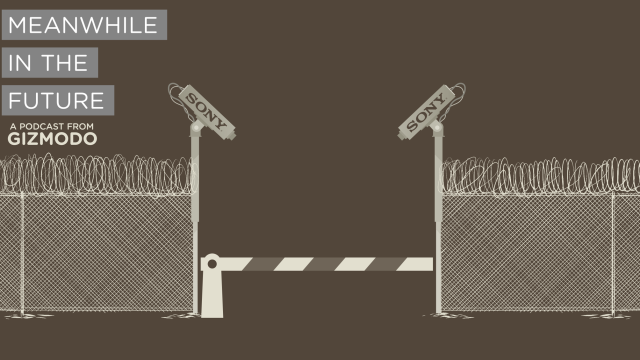Every time you go from one country to the next, you cross a border. And that usually means dealing with some kind of border agency that enforces each country’s idiosyncratic rules and regulations. But what if the whole process were standardised and run by a single organisation?
To figure out what this future might be like I called Madeline Ashby, Tim Maly and Emily Horne. Ashby is a science fiction author who’s studied the future of border security. Maly and Horne created a design studio called Border Town, that explored the weird, unique borders humans have created in places like Baarle-Hertog, where if you shift your chair from one side of a cafe to the other you cross a border.
Ashby says that it’s not all that hard to imagine this kind of harmonized border situation in theory, but in practice agreeing to the same set of security standards and practices might be a challenge. That said, it’s something people have talked about before on a smaller scale. The EU, for example, changed the way people move through borders. The Niagara Falls bridges are run by an organisation that is neither American or Canadian. After 9/11 the Department of Homeland Security was created by combining 22 different agencies into one. And there was talk of uniting the border practices of the US, Canada and Mexico.
But that kind of unification usually comes as a way to create a ring around a space, to keep those outside of it out. But in this hypothetical future world, it’s every border. And while countries might not be took keen on unifying, companies would love it. Because whoever makes those checkpoints is going to be very rich. Would Sony have a monopoly on the scanners? Who would make every fingerprint scanner used at every border? Whoever negotiates that deal can probably retire on the bonus they will make.
The idea of creating a single entity to smooth border crossings might seem like a way to guarantee efficiency. But if Maly and Horne learned anything from Border Town it’s that there will always be strange blips. “Even if there was some kind of standardised system,” Maly says, “you would discover that this standardised system did not result in a standard situation.”
Horne points to one example of an unexpected result from harmonization: when the Department of Homeland Security unified, it took over animal and plant inspection services. Because the newly-united DHS, particularly in the wake of 9/11, cared far more about terrorism than about plant and animal inspection, they got lax on those inspections. And through those lax regulations, more diseases and invasive species and pathogens got through, and food prices actually increased due to the toll they took on the agricultural system.
Or take border towns in Europe. Once the EU unified, and people didn’t have to stop at borders, the businesses that lived on travellers pausing as they passed through went out of business. There are ghost towns all over Europe that mark where check points used to be.
And if this newly-formed giant border control group is the one that issues passports, that could either limit or free up people. Today, certain countries have “powerful” passports, that they can use to travel all over the world. Other countries don’t. If everyone had the same passport, there could be new opportunities for those who want to move around. Or, on the flip side, it could effectively disappear places. If the organisation decides that anybody from a certain set of coordinates can’t leave, Ashby says it could create “mythical little Narnia’s of locations that don’t properly exist.”
And this is where we come back to some of the surveillance topics we’ve tackled before on the show. If there was a worldwide entity, monitoring and securing all borders, that means that there’s a worldwide entity that has to have a whole lot of information about every single person who ever crosses a border. And that database probably includes everything from your faceprint to your finger prints to your retina scan, along with information about your travel habits, your job, your family. All in one place. Which is a little bit terrifying.
For a lot of the episode we focus on human travellers — people who might be going to a conference or a wedding or a vacation. But in reality countries really don’t care that much about how comfortable or efficient our border crossing is. They’re more concerned about moving goods efficiently. For example. During the course of being built, a car manufactured in the Detroit-Windsor region crosses the US Canada border seven times. Any delay costs those car companies a whole lot of money.
And when it comes to standardising that, Ashby thinks that we’ll see a whole lot more use of sensors and machines talking to one another. So shipments could transmit their properties to machines that detect those signals.
We talk about other ways this might impact national identity, personal relationships and economies in the episode, so have a listen.
Illustration by Jim Cooke
